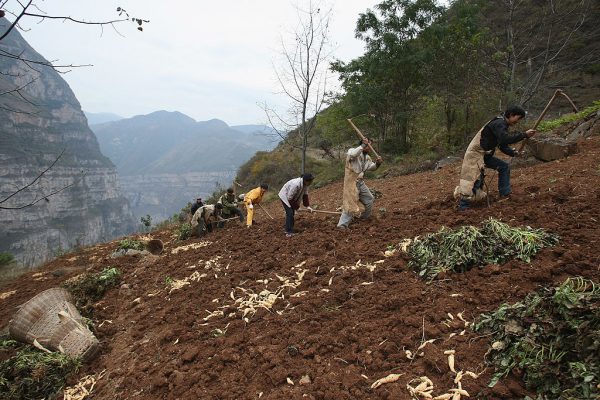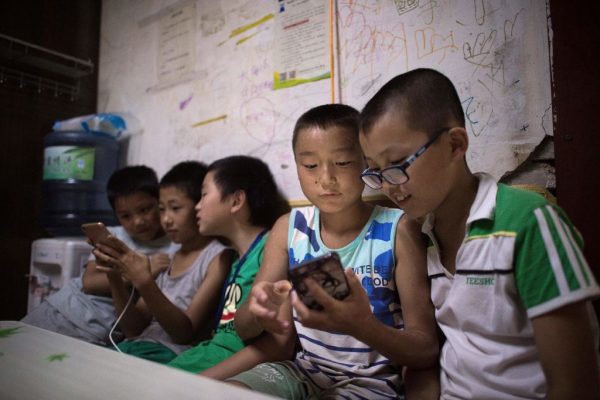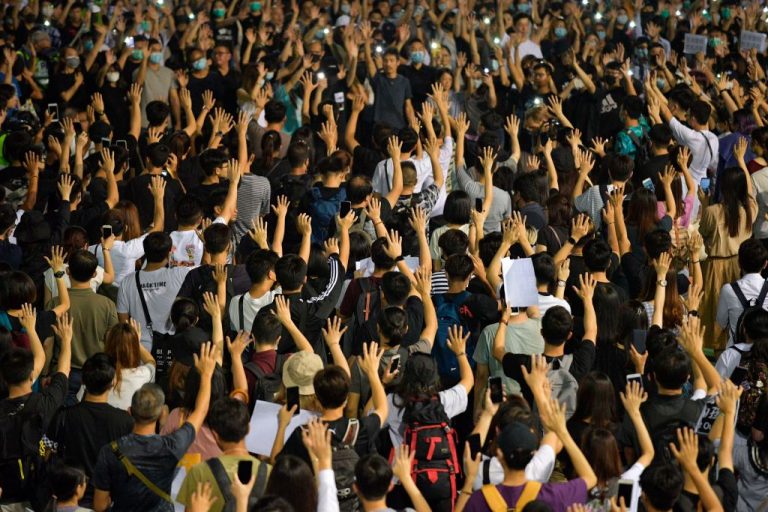Violators of the Chinese Communist Party’s new rules for regulating the speech of elites could face suspension and even a permanent industry ban according to a China Media Bulletin from human rights organization Freedom House. Since January, a three-pronged increase in censorship has been rolled out by the CCP’s own Central Committee, the National Press and Publication Administration, and an entertainment industry association under the Ministry of Culture. The mandates are issued to control the following three groups (in the same order): CCP cadres, Chinese journalists, and celebrities.
Freedom House concluded that communist China’s online regulators’ retooling their censorship of elites—a group that was already tightly controlled and mostly acquiescing—indicates internal dissent to a notable degree.
The human rights organization further reported that the measures include “prohibiting party cadres from publicly criticizing CCP decisions, refusing press card renewal to journalists found to have posted content deemed objectionable via personal social media accounts, and requiring public entertainment figures to abide by 15 rules, such as promoting ‘the party’s line’ while not ‘undermining national unity’ or ‘endangering national security.’”
Burgeoning millions worry the CCP
Vision Times’ own internal analysis also suggests that the CCP fears internal unrest among masses of the common Chinese people themselves, who might be influenced by these elites. Therefore, silencing these recognized voices is just the tip of the iceberg, in terms of the dissent that the CCP is facing.
For instance, ANI of South Asia reports that “elusive criteria” and “hidden rules” have long been used by the CCP to maintain tight control over millions of rural Chinese who are not permitted to migrate to large urban centers for jobs. However, according to Canadian think-tank IFFRAS, these huge masses of restricted Chinese are a potential for widespread unrest. One example of the scale of those harmed by the migration rules includes 61 million children. In 2010, the children under the age of 17 were left behind when their parents attempted a lateral migration that was allowed to small towns and other zones. The children are now growing into young adults and are considered a potentially destabilizing element of the population.

Success
You are now signed up for our newsletter
Success
Check your email to complete sign up
While urban youth grew up largely without siblings due to the One-Child Policy, these rural youth often have larger families. The latter are considered “disadvantaged compared to their urban peers, particularly in terms of material standard of living, access to quality education, and future opportunities,” Cara Wallis wrote for the International Journal of Communication. They often become urban laborers after finishing only middle school or part of high school.
What is the CCP afraid of?
The disenfranchisement of these rural families is rooted in the land reform of the Cultural Revolution. The third commentary of the award-winning Nine Commentaries on the Communist Party explains that over 100,000 landlords were murdered after the Communist Party incited the peasants to rise up and steal the land:
“In certain areas, the CCP and the peasants killed the landlords’ entire families, disregarding gender or age, as a way to completely wipe out the landlord class. In the meantime, the CCP launched its first wave of propaganda, declaring that ‘Chairman Mao is the great savior of the people’ and that ‘only the CCP can save China.’ During the land reform, landless farmers got what they wanted through the CCP’s policy of reaping without laboring and robbing without concern for the means. Poor peasants credited the CCP for the improvement in their lives, and so accepted the CCP’s propaganda that the Party worked for the interests of the people.”
One elderly man who had been a poor farmer at the time of this movement said that the CCP soldiers forced the members of his village, including himself, to stand in a circle and watch a landlord being killed. He said a person couldn’t act as if he or she did not want it to happen, or they, too, could be a victim. This way the entire village was implicated in the murder. It was a great burden on his spirit. This was the Communist Party’s “land to the tiller” promise, which played upon the greed of tenant farmers who later realized their promise to support horrendous acts.
The Nine Commentaries narrates what happened next in many country areas: “For the owners of the newly acquired land, the good days of ‘land to the tiller’ were short-lived. Within two years, the CCP imposed a number of practices on the farmers, such as mutual-aid groups, primary cooperatives, advanced cooperatives, and people’s communes. Using the slogan of criticizing ‘women with bound feet’ — meaning those who are slow paced — the CCP drove and pushed, year after year, urging peasants to dash into socialism. With grain, cotton, and cooking oil placed under a unified procurement system nationwide, the major agricultural products were excluded from market exchange. In addition, the CCP established a residential registration system, barring peasants from going to the cities to find work or dwell. Those who were registered as rural residents were not allowed to buy grain at state-run stores, and their children were prohibited from receiving education in cities. Peasants’ children could only be peasants, turning the 360 million rural residents of the early 1950s into second-class citizens.”
Seventy years later, a huge transient group of young migrant workers—the second-class citizens of the hukou, or housing registration system—seek wealth beyond their villages, which have been made poorer by the extraction of wealth for the state. The wandering youth have also become a huge mobile media and social media market. In communist China, working in urban environments often goes hand in hand with owning a smartphone.
Samantha Hoffman, writing for the Australian Strategic Policy Institute, states that mobile phones are often required for communist China’s “tech-enhanced authoritarianism.” She explains that to not have a phone is to be far more marginalized than the one already might be as a youth of rural origin. A smartphone ensures government surveillance since users are required to face scan, in addition to other forms of tracking and surveillance. The device also lures youth into social media’s burgeoning algorithms, which are designed to cause addiction in a short amount of time.
Millions of uneducated, notably young social media addicts are in turn more easily influenced by social media and celebrities. However, these millions of youth and young adults cannot be censored as easily as their elite influencers can. The younger users cleverly employ homophones and other tricks to routinely discuss censored topics online. This practice is so pervasive that it has trickled back into the spoken word and is transforming the Chinese language among young people.

In a move that may be surprising to some critics, some of the censorship moves aimed at celebrities appear aligned with bringing a more traditional kind of entertainment for the youth. According to Kevin Frayer, for Getty Images, Xi has introduced “new regulations on education programs and the ‘aesthetics’ of men on television and in advertising, as well as an order to online gaming companies to limit minors’ access to video games to only 3 hours per week.”
However, this may not actually be so surprising, as the Chinese Communist Party often couches its need for total control in terms that may appear benevolent on the surface. For instance, “land to the tiller,” is a phrase that, to this day, is repeated by some students. They have confused communism or its precursor, socialism, with enhanced welfare for the people; the reality of this policy is not always known. Some who once supported Xi, hoping that he would remove China from the overhanging cloud of the murderous Communist Party, have begun to lose hope in him. Furthermore, the lost hope in Xi has been exacerbated by Xi’s enemies, where even supportive statements are framed as criticizing the ruler. Xi’s efforts to curtail the brutal Jiang faction, headed by former dictator Jiang Zemin, have not gone smoothly after a promising start.
In this climate, many Chinese and China watchers have become alarmed at Xi’s recent policies. Population Research Institute president Stephen W. Mosher called them an “overall policy of sinicization of religion… a policy of replacing the worship of God with the worship of the Communist Party leadership.”
Embattled and losing supporters, Xi’s efforts to tighten control of communist China may have the opposite of the intended effect. Such efforts have given rise to the three-pronged strategy of censoring cadres, journalists, and celebrities, who already typically tow the Party line. It is a curious feint at the control and suggests a more chaotic situation beneath the surface: a fear that unnatural and large-scale social forces, born a generation ago from the CCP’s legacy of killing, may one day rise up in an uncontrollable movement. Why didn’t Xi break away from the Party and its ghosts long ago?
Like the usurping brother in Hamlet, the CCP always fears that the darkness it has created conceals its final nemesis. The CCP’s crimes are too many; therefore it is nervous and cannot govern normally.














